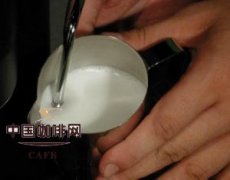Share the main factors that affect coffee
Abrasion:
Grinding degree involves a wide range, generally speaking, and coffee bean varieties, roasting degree. 100% ARABICA Beans are generally coarser than mixed beans. There is a certain range of grinds to make a perfect cup of Espresso. Grinding too fine will cause coffee brewing, effluent to drip out, hot water stay too long, resulting in excessive extraction, grinding too coarse will cause coffee flow, resulting in insufficient extraction, affecting the taste of coffee. Under normal grinding and compression, the extracted coffee should flow out fine and uninterrupted, and flow out 30 C. C.~ 30 C. C. within 25 seconds. Espresso coffee at 35C.
Powder pressing strength:
Compaction is used so that coffee powder can be extracted evenly. Because coffee powder that has not been compressed is easily broken down by hot water, resulting in uneven extraction. Packing too tightly will make it difficult for hot water to pass through, resulting in excessive extraction. The proper packing will match the characteristics and grindness of the coffee beans.
Extraction pressure:
Also known as brewing pressure. Pressure of 8 - 9 bar is generally used. Why use this pressure? This is because this is the empirical value obtained from actual operation. Because too high pressure will break down the coffee powder, causing holes, forming uneven extraction, and too high pressure, hot water through too fast, will cause insufficient extraction. Too little pressure causes over-extraction.
Powder Quantity:
This factor often affects the quality and taste of a cup of coffee. Generally, the appropriate amount of powder is recommended to be around 7.5g/cup of Espresso, because too much powder will cause the coffee cake to top the water network, so that the coffee has no sufficient expansion space, resulting in excessive extraction. If the amount of powder is too small, the thickness of the powder cake is insufficient, and it is easy to be broken down by hot water to form uneven extraction.
Temperature:
Why temperature is the first focus of discussion. Because other factors are better solved and there are differences in coffee bean quality and varieties. But temperature is the most difficult thing to master for ordinary machines. Because coffee itself contains hundreds of very complex substances, and these substances will be extracted with different extraction temperatures to different substances, resulting in coffee ever-changing taste. Therefore, it is recommended that the coffee extraction temperature is preferably between 90°C and 92°C.
Water quality:
This factor is often overlooked and will become increasingly important in the days to come. The essence contained in coffee beans wants to be extracted, among which the minerals in water account for a large factor, and the most suitable temperature for brewing coffee is
90~92°C, boiling hot water can not be reached, so a perfect filtration system will be very important. Boiled water or RO water is not suitable for brewing coffee. The importance of water quality also involves the problem of overnight water. Therefore, it is necessary to make empty brewing for 3 minutes to let overnight water flow away at the beginning of operation.
Human problems:
All the above factors are passive factors, and the last remaining problem is the operator's problem. A good operator can always pay attention to the above key points, pay attention at any time, avoid mistakes, and the effectiveness of milk foaming is also a personal factor. Therefore, to make a successful cup of coffee, depends on a successful coffee operator.
Important Notice :
前街咖啡 FrontStreet Coffee has moved to new addredd:
FrontStreet Coffee Address: 315,Donghua East Road,GuangZhou
Tel:020 38364473
- Prev

The "preparation" of coffee flower
For all the coffee friends, especially those who are new to coffee, a very important reason why they want to learn about coffee is not to make it taste good, but to be most interested in the beautiful patterns on the coffee.
- Next

Requirements for the quality of milk foam
Every time I communicate with my friends on this subject, I only get some very general results.
Related
- What is the meaning of lactic acid fermentation with coffee bean treatment?
- How to judge the state of foam by sound?
- How does the latte pull out the unicorn pattern? Come to get for a little trick to improve the flower pull!
- Will flower pulling affect the taste of the latte?
- Do you know the history of coffee?
- The difference between honey treatment and sun washing what is raisin honey treatment?
- What kind of milk can a novice use to make coffee foam to keep the foam longer? The correct method and skills of milking tutorial sharing
- Why do washed coffee beans taste sour? Flavor characteristics of washed Coffee
- Introduction to the skill of how to practice the size and height of water injection around the circle of hand-brewed coffee
- How do beginners practice coffee flower drawing from scratch?

